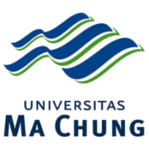PICTIONARY GAME FOR VOCABULARY MASTERY: BEST PRACTICE FROM A RURAL SCHOOL CONTEXT
Abstract
While online gamification in education settings has spread worldwide in this digital era, its application gets confronted with massive opposition, especially in rural contexts. Several technologically inaccessible schools may find it unfavourable to apply such a model in learning. This study looks at redefining a simple application of particular Pictionary games to boost students’ English vocabulary learning in a predominantly rural, private school setting. It aims at improving students’ vocabulary mastery through the plain-sailing Pictionary game technique and re-establishing the teacher’s best practices to apply. Two-cycle classroom action research was applied by collecting data through observation, questionnaires, interviews, and tests. The qualitative data analysis shows better-changing activities, attitudes, perceptions, and learning experiences leading to the positive outcomes of the game application. Quantitative data on students’ vocabulary tests in two-prioritized skills (reading and listening) also show a remarkable improvement from cycle one to cycle two, with the class percentage passing the success criterion for reading and listening vocabulary mastery being 83.33% and 75%, respectively. In addition, the teacher’s reflection on each cycle shapes profound insights into several contextual best practices: goal-oriented teaching, progressiveness, shift gears, differentiated learning, pace and variety, and encouragement.
References
Ayu, R. R., Sofian, & Bunau, E. (2018). The effect of using Pictionary games on students’ English vocabulary. Jurnal Pendidikan Dan Pembelajaran Khatulistiwa, 7(9), 4–8. https://doi.org/10.26418/jppk.v7i9.28105
Burns, A. (2010). Doing action research in English language teaching: A guide for practitioners. Routledge.
Daulay, S. H., Lubis, Y., Damanik, E. S. D., Wandini, R. R., & Putri, F. A. (2021). Does Pictionary Game effective for students’ speaking skill? Journal of English Language Teaching and Linguistics, 6(1), 13–25. https://doi.org/10.21462/jeltl.v6i1.486
Davidson, O., & Uran, S. I. G. (2022). An analysis of the instructional design in English teaching and learning during and beyond Covid-19 Pandemic (A library research). Edunipa Journal, 3(1), 13–26. http://edunipa.nusanipa.ac.id/index.php/ednp/article/view/72
Dwi, L. E. (2017). Improving students’ vocabulary mastery through Pictionary board game at Grade IV B of Elementary School 36 Pekanbaru. Al-Islah: Jurnal Pendidikan, 9(2), 1–15. https://doi.org/10.35445/alishlah.v9i2.48
Fatmawati, A. Y., Miranty, D., & Hamer, W. (2022). The implementation of Pictionary games to improve vocabulary comprehension. Journal of Linguistics, Literacy, and Pedagogy, 1(1), 35–39. https://doi.org/10.30870/jllp.v1i1
Hamer, W., & Lely, L. N. (2019). Using Pictionary game to increase learners’ vocabulary mastery in English language instruction. Journal of English Education Studies, 2(1), 43–51. https://doi.org/10.30653/005.201921
Harmer, J. (2001). The practice of English language teaching (3rd ed.). Longman.
Hiebert, E. H., & Kamil, M. L. (2005). Teaching and learning vocabulary: Bringing research to practice. Lawrence Erlbaum Associates Publisher.
Jumarthini, S., Sadapotto, A., Hermansyah, S., Manda, I., & Usman, M. (2022). The effect of Pictionary game toward student’s vocabulary mastery in mental lexicon. La Ogi: English Language Journal, 8(2), 162–167. https://doi.org/10.55678/loj.v8i2.680
Kapp, K. M., Blair, L., & Mesch, R. (2014). The gamification of learning and instruction fieldbook: Ideas into practice. John Wiley & Sons, Inc.
McCarten, J. (2007). Teaching vocabulary: Lessons from the corpus, lessons for the classroom. Cambridge University Press.
Nation, I. S. P. (2001). Learning vocabulary in another language. Cambridge University Press. https://doi.org/10.1017/CBO9781139524759
Niga, E., & Janggo, W. O. (2022). An analysis of students’ learning styles of English in language classes at Catholic Private School of St. John Paul II Maumere in the academic year of 2018/2019. Edunipa Journal, 3(3), 49–74. https://edunipa.nusanipa.ac.id/index.php/ednp/article/view/94/56
Nishanthi, R. (2018). The importance of learning English in today world. International Journal of Trend in Scientific Research and Development, 3(1), 871–874. https://doi.org/10.31142/ijtsrd19061
Richards, J. C., & Renandya, W. A. (2002). Methodology in language teaching: An anthology of current practice. Cambridge University Press.
Santosa, M. H., Harismayanti, I., & Putra, I. N. A. J. (2022). Technology in action: Developing gamification handbook in English teaching and learning for the 21st Century Learners. Teaching English as a Second or Foreign Language (TESL-EJ), 26(1), 1–25. https://doi.org/10.55593/ej.26101a2
Shaptoshvili, S. (2002). Vocabulary practice games. English Teaching Forum, 40(2), 34–37. https://americanenglish.state.gov/files/ae/resource_files/02-40-2-h.pdf
Simpson, J. (2011). The Routledge handbook of applied linguistics. Routledge.
Tay, M. S. S., & Uran, S. I. G. (2022). Suggestopedia method to improve students’ English vocabulary mastery in a private senior high school within a rural context in Sikka Regency. Edunipa Journal, 3(3), 18–35. http://www.edunipa.nusanipa.ac.id/index.php/ednp/article/view/92
Thornbury, S. (2002). How to teach vocabulary. Longman.
Uran, S. I. G. (2022a). Flipping the classroom in the EFL Reading for Academic Purpose Course during Covid-19: Barriers and boosters. LLT Journal: A Journal on Language and Language Teaching, 25(1), 171–184. https://doi.org/10.24071/llt.v25i1.4245
Uran, S. I. G. (2022b). Pembelajaran pada era Metaverse: Antara trend, konektivitas, dan kesenjangan. In A.
Wijayanto, A. S. Anggaira, A. Mukholid, I. K. Khusna, & N. E. Riskhayanti (Eds.), Sistem informasi dan teknologi digital era Metaverse (1st ed., pp. 199–205). Akademia Pustaka. https://files.osf.io/v1/resources/yrfmu/providers/osfstorage/6317621fe7f1b71e24aaeb15?action=download&direct&version=1
Webb, S., & Nation, P. (2017). How vocabulary is learned. Oxford University Press.
Wijayanto, A. (2022). Sistem informasi dan teknologi digital era Metaverse. (1st ed.). Akademia Pustaka. https://files.osf.io/v1/resources/yrfmu/providers/osfstorage/6317621fe7f1b71e24aaeb15?action=download&direct&version=1

This work is licensed under a Creative Commons Attribution-ShareAlike 4.0 International License.
Open Access Policy
This is an open access journal which means that all content is freely available without charge to the users or their institution. Users are allowed to read, download, copy, distribute, print, search, or link to the full texts of the articles, or use them for any other lawful purpose, without asking prior permission from the publisher or the author. This is in accordance with the BOAI definition of open access.
![]() This work is licensed under a Creative Commons Attribution-ShareAlike 4.0 International License.
This work is licensed under a Creative Commons Attribution-ShareAlike 4.0 International License.

















